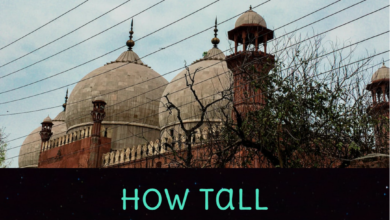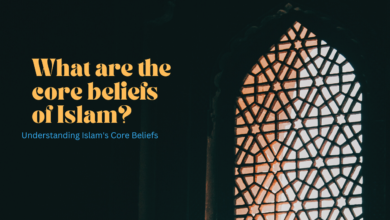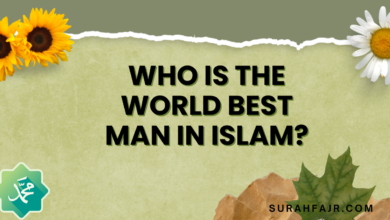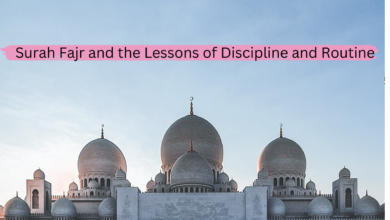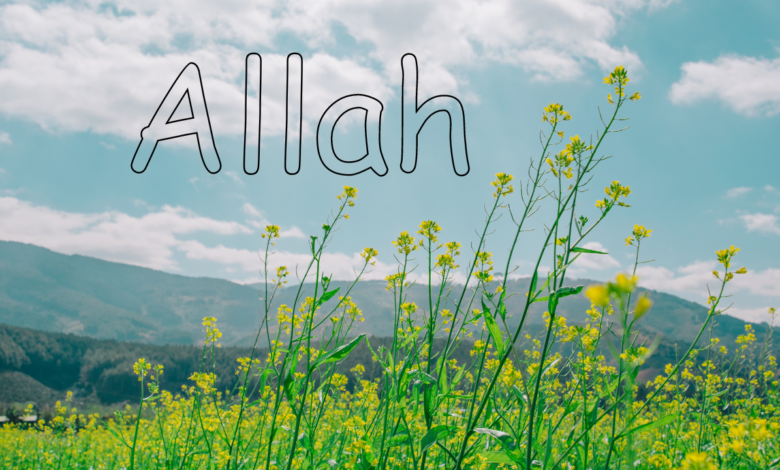
Who is Allah?
Allah is the Arabic word for God in Islamic belief. Muslims believe that Allah is the one and only deity, the creator of the universe, and the source of all existence.
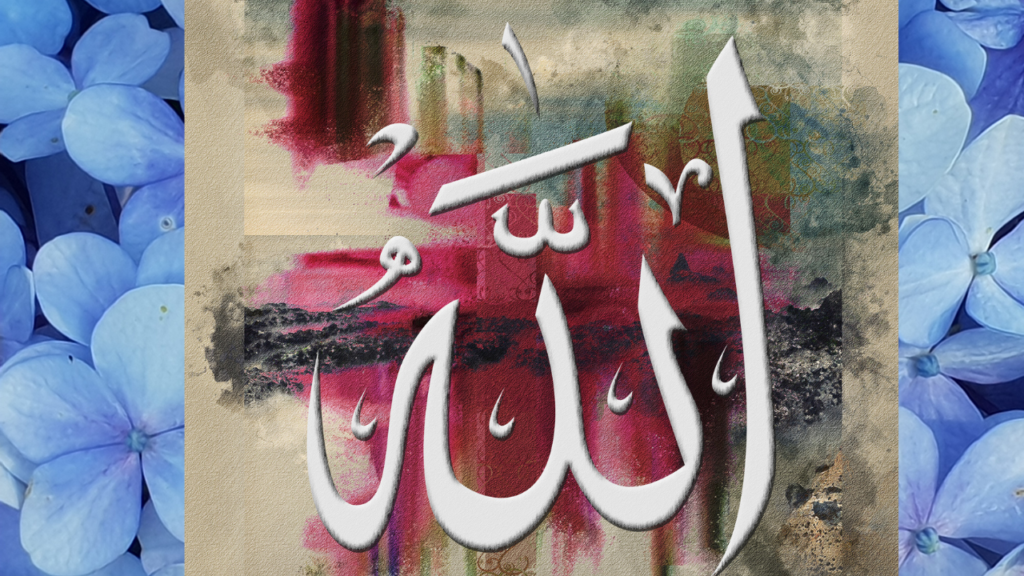
Introduction
Allah, the central figure in Islam, is a topic of profound significance and contemplation for over a billion Muslims worldwide. The concept of Allah transcends mere theology; it defines the core of Islamic faith, culture, and practice. To understand Islam, one must grasp the essence of Allah, the monotheistic deity worshiped by Muslims. This article explores the multifaceted nature of Allah, delving into the characteristics, attributes, and significance of this divine being.
The Oneness of Allah
Islam is renowned for its strict monotheism, encapsulated in the Shahada, the Islamic declaration of faith: “There is no god but Allah, and Muhammad is His Messenger.” This declaration underscores the absolute oneness of Allah. In Islamic theology, Allah is the only true God, and there are no other deities or beings that share His divine attributes. This concept of absolute monotheism is known as Tawhid and is the foundation of Islamic belief.
Attributes of Allah
Allah’s attributes are described in the Quran, the holy book of Islam, and Hadiths, the sayings and actions of the Prophet Muhammad (peace be upon him). These attributes provide insight into the nature of Allah and how Muslims perceive Him. Some of the key attributes of Allah include:
- All-Knowing (Al-‘Alim): Allah possesses infinite knowledge, encompassing the past, present, and future. His knowledge is comprehensive and absolute.
- All-Powerful (Al-Qadir): Allah has complete and unrestricted power over all things. He can create, shape, and control the universe as He wills.
- Merciful (Ar-Rahman) and Compassionate (Ar-Rahim): Allah’s mercy and compassion are boundless, extending to all of His creation. These attributes are emphasized in Islamic prayers and rituals.
- Just (Al-Adl): Allah is the epitome of justice. His decisions are fair, equitable, and free from any bias.
- The Creator (Al-Khaliq): Allah is the sole creator of the universe, including all living beings and inanimate objects. Nothing exists or comes into being without His will.
- The Sustainer (Ar-Razzaq): Allah provides for all of His creation, ensuring that their needs are met. Muslims believe that all sustenance comes from Him.
- The Forgiving (Al-Ghaffar) and The Pardoner (At-Tawwab): Allah is willing to forgive those who repent and seek His forgiveness. These attributes offer hope and redemption to believers.
- The Everlasting (Al-Qayyum): Allah is eternal and self-sustaining. He does not require anything or anyone to maintain His existence.
Also Check
- Does Islam use the old testament?
- The Benefits of Islam
- Why Does Allah Test Us?
- Why did Allah Almighty expel Hazrat Adam and Hazrat Eve from Heaven?
- Who was the last Prophet of Islam?
Significance of Allah in Islam
Understanding who Allah is holds immense significance in Islam:
- Spiritual Guidance: Allah serves as the ultimate source of spiritual guidance for Muslims. His commands, as revealed in the Quran, provide a moral and ethical framework for believers.
- Purpose and Meaning: Allah gives purpose and meaning to the lives of Muslims. They strive to fulfill His will and seek His pleasure through acts of worship, kindness, and compassion.
- Unity and Identity: The belief in Allah unifies Muslims worldwide. It transcends cultural, ethnic, and national boundaries, creating a sense of shared identity among believers.
- Hope and Resilience: Allah’s attributes of mercy and forgiveness offer solace and hope to Muslims during times of hardship and adversity. Believers turn to Him in prayer, seeking His help and guidance.
Conclusion
Allah, as understood in Islam, is the One God, the Creator, Sustainer, and the ultimate source of guidance and purpose for over a billion believers. The concept of Allah is intricately woven into the fabric of Islamic belief and practice, shaping the lives of Muslims in profound ways. It is through a deep understanding of Allah’s attributes and His oneness that Muslims find spiritual fulfillment and a sense of purpose, unity, and hope in their faith.

Frequently Asked Questions (FAQs) About Who is Allah?
Who is Allah?
Allah is the Arabic word for God in Islamic belief. Muslims believe that Allah is the one and only deity, the creator of the universe, and the source of all existence.
Is Allah the same as the God of other religions?
While Allah is the God of Islam, there are similarities between Allah and the God worshiped in Christianity and Judaism. All three religions are monotheistic and believe in the existence of one God, but they may have different understandings and interpretations of God’s nature and attributes.
What are some of Allah’s attributes?
Allah is described in the Quran with various attributes, including being merciful, compassionate, all-knowing, all-powerful, just, and forgiving. These attributes help define Allah’s nature in Islamic theology.
Why is Allah often referred to as “the Merciful” and “the Compassionate”?
These titles reflect the idea that Allah is loving and forgiving. Muslims believe that Allah’s mercy and compassion are boundless, and they seek His forgiveness and guidance in their daily lives.
Can Allah be depicted in images or physical forms?
In Islam, it is strictly forbidden to create images or physical representations of Allah. Allah is considered beyond human comprehension and cannot be visualized or depicted in any way.
How do Muslims communicate with Allah?
Muslims believe they can communicate with Allah through prayer (Salat) and supplication (Dua). They also read and recite the Quran, which is considered Allah’s direct guidance to humanity.
What role does Allah play in the life of a Muslim?
Allah is central to the life of a Muslim. They turn to Allah for guidance, strength, and support in all aspects of life. Muslims strive to obey His commandments and live according to Islamic teachings.
Are there any specific rituals or practices associated with worshiping Allah?
Muslims perform daily prayers, observe fasting during Ramadan, give to charity (Zakat), and undertake a pilgrimage to Mecca (Hajj) if financially and physically able. These are some of the key rituals and practices associated with worshiping Allah in Islam.
What is the significance of the Quran in relation to Allah?
Muslims believe that the Quran is the literal word of Allah, revealed to the Prophet Muhammad through the Angel Gabriel. It is the primary source of guidance for Muslims and contains Allah’s teachings and commandments.
Do all Muslims have the same understanding of Allah?
While there is a core belief in Allah shared by all Muslims, interpretations and understandings may vary among different Islamic traditions and schools of thought. However, the fundamental belief in the oneness of Allah remains consistent across all of Islam.

